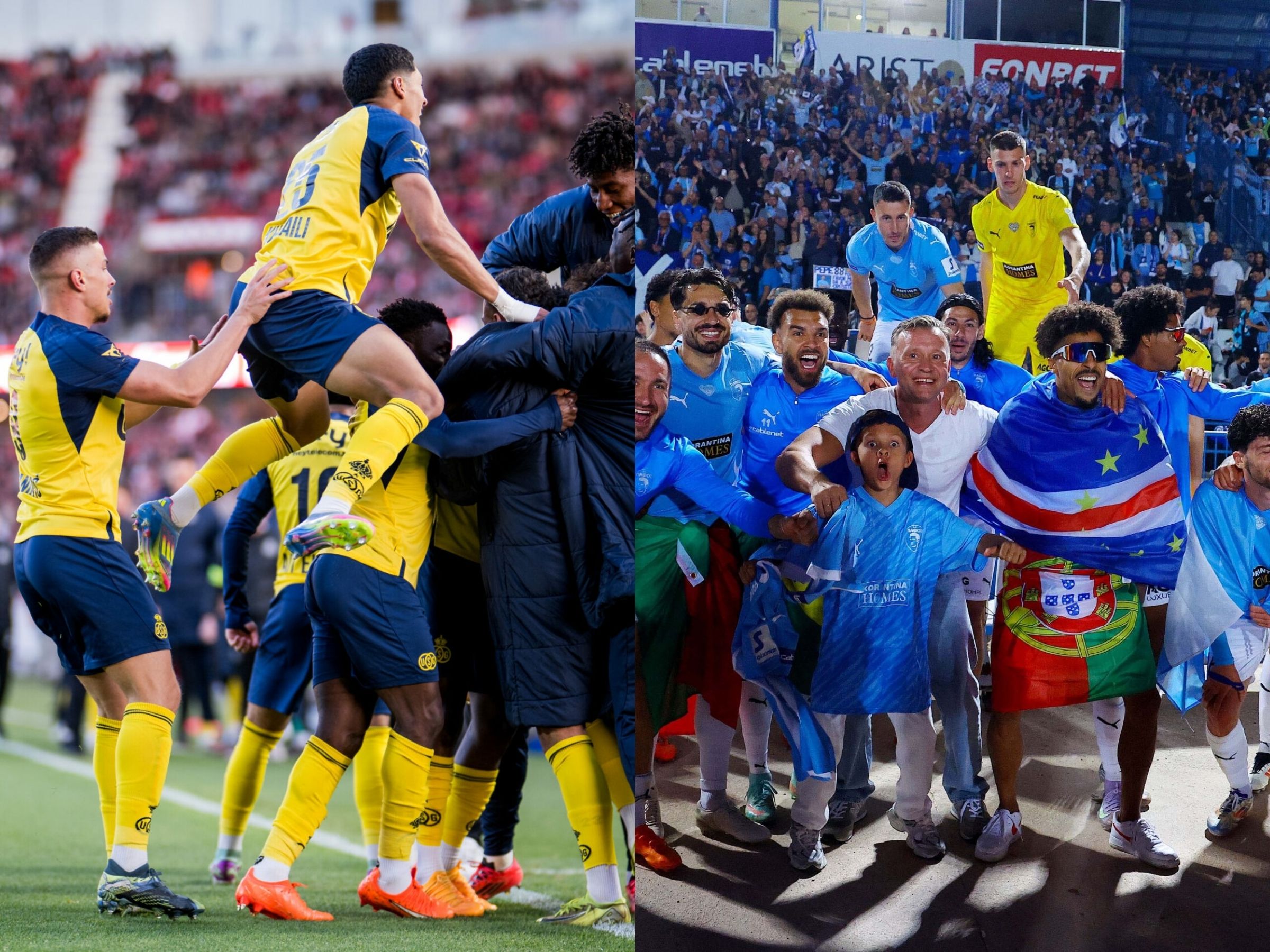Few institutions in world football carry the gravitas of Bayern Munich. The Bavarian powerhouse has transcended the traditional notion of what a football club can be, establishing itself not just as a sporting entity, but as a cultural phenomenon that bridges local heritage with global ambition.
While their trophy cabinet sparkles with an impressive array of silverware, including 33 Bundesliga titles and 6 Champions League trophies, Bayern’s true distinction lies in how they’ve achieved this success. Their approach combines sporting excellence with cultural authenticity and financial prudence in a way that no other elite club has managed to replicate.
February, 27th 1900
Happy 1️⃣2️⃣3️⃣ anniversary to our beloved club FC Bayern München 🎉♥️ pic.twitter.com/SENTPVqWDy
— FC Bayern München (@FCBayern_World) February 26, 2023
The story of Bayern Munich is one of calculated evolution, where tradition doesn’t compete with progress but rather guides it. In an era where football clubs increasingly sacrifice their soul for success, Bayern stands as proof that the two aren’t mutually exclusive.
Consistency Beyond Compare
Bayern’s dominance in German football has become so consistent that it almost defies logic. Since the 1970s, no decade has passed without the club securing at least five Bundesliga titles, a level of consistency unmatched in Europe’s top five leagues. Even Real Madrid and Barcelona, with their storied histories, haven’t maintained such unwavering excellence over such an extended period.
The club’s European success follows a similar pattern of reliability. Bayern Munich has reached the Champions League knockout stages for 15 consecutive seasons, demonstrating their ability to compete at the highest level year after year. Their two treble-winning seasons (2013 and 2020) stand as testaments to their ability to maintain excellence across multiple competitions simultaneously.
🔟 years ago
FC Bayern completed the treble 🏆🏆🏆 pic.twitter.com/T2Ljh8sXgB— FC Bayern München (@FCBayern_World) June 1, 2023
This consistency extends beyond just results. Bayern’s ability to smoothly transition between generations of players and managers while maintaining their high standards sets them apart. When legends retire or move on, the club doesn’t rebuild – they reload, maintaining their competitive edge through careful succession planning.
Unique Club Philosophy
“Mia San Mia” isn’t just a motto; it’s the philosophical backbone of everything Bayern Munich represents. This Bavarian phrase, meaning “We are who we are,” encapsulates a unique blend of self-assured confidence and grounded humility that permeates every level of the club. It’s a reminder that success comes from staying true to one’s identity while constantly striving for improvement.
🎧 NEW RELEASE 🎧#MiaSanMia Song | #FCBayern 🔥https://t.co/wsjnRNICVh
— FC Bayern (@FCBayernEN) June 4, 2019
This philosophy manifests in the club’s approach to both victory and defeat. In triumph, Bayern maintains dignity and respect for their opponents. In setback, they demonstrate resilience and unity, viewing challenges not as obstacles but as opportunities for growth. This mentality has created a culture where pressure is viewed as a privilege rather than a burden.
The club’s strong Bavarian identity remains unwavering despite their global reach. While other clubs might dilute their local connections in pursuit of international appeal, Bayern has turned their regional identity into a global strength. They’ve proven that being deeply rooted in local culture doesn’t limit international appeal – it enhances it.
Financial Responsibility & Stability
Bayern’s approach to financial management stands in stark contrast to the boom-and-bust cycles common among elite clubs. Their debt-free status isn’t a coincidence but the result of decades of prudent financial planning and disciplined execution. The club operates on a simple principle: spend what you earn, not what you hope to earn.
The unique ownership structure, combining the German 50+1 rule with strategic corporate partnerships, has created a model of sustainable success. Each of their key shareholders – Adidas, Audi, and Allianz – owns 8.33% of the club, while the majority remains with the members. This structure provides both financial stability and protection against the whims of individual owners.
Bayern’s commercial success comes from building long-term partnerships rather than chasing short-term gains. Their sponsorship deals are among the most valuable in football, yet they’ve achieved this without compromising their principles or oversaturating their brand. This approach has allowed them to maintain competitive wages and transfer budgets while remaining financially sustainable.
World-Class Management & Leadership
The influence of figures like Uli Hoeneß and Karl-Heinz Rummenigge on Bayern’s modern identity cannot be overstated. Their transition from players to executives set a precedent for how football clubs could be run by those who truly understand both the sport and the business. Their leadership established the foundation for Bayern’s current success.
This tradition continues with former players like Oliver Kahn and Hasan Salihamidžić taking key leadership roles. Their presence ensures that decisions are made with both business acumen and football understanding. This combination of perspectives helps maintain the delicate balance between commercial success and sporting excellence.
The club’s boardroom success stems from their ability to plan long-term while remaining adaptable to changing circumstances. Leadership transitions are carefully managed, ensuring continuity of vision while allowing for fresh perspectives. This approach has created a stability that’s rare in modern football.
Balancing Big Signings with Youth Development
Bayern’s transfer strategy exemplifies their balanced approach to team building. While they’re capable of making headline-grabbing signings when necessary, they’re equally committed to developing young talent. The arrivals of stars like Robert Lewandowski and Arjen Robben are balanced by the emergence of homegrown talents like Thomas Müller and David Alaba.
𝑩𝒖𝒔𝒚 𝑺𝒖𝒏𝒅𝒂𝒚 at Säbener Straße! 👊 pic.twitter.com/rXp6P0WXBV
— FC Bayern (@FCBayernEN) February 9, 2025
The Bayern Academy represents a significant investment in the club’s future. Their youth development system isn’t just about producing first-team players; it’s about instilling the Bayern philosophy from an early age. This approach ensures that young players understand the club’s values and expectations before they ever step onto the first-team pitch.
Their success with youth development has created a virtuous cycle. Young players know that Bayern offers a genuine pathway to the first team, making the club an attractive destination for emerging talents. This reputation helps Bayern compete for the best young players while maintaining their financial discipline.
Rivalries and Bundesliga Dominance
Der Klassiker, Bayern’s rivalry with Borussia Dortmund, has become one of football’s most anticipated fixtures. However, Bayern’s approach to this rivalry reflects their broader philosophy. While they compete fiercely on the pitch, they maintain respectful relationships off it, as evidenced by several high-profile transfers between the clubs.
Their dominance of the Bundesliga has drawn both admiration and criticism. Yet Bayern’s success hasn’t come at the expense of the league’s competitiveness. Instead, they’ve raised standards across German football, forcing other clubs to improve their operations and development programs to compete.
BAYERN MUNICH WIN THEIR TENTH CONSECUTIVE BUNDESLIGA TITLE 🏆🇩🇪 pic.twitter.com/w0HnBxblDt
— GOAL (@goal) April 23, 2022
Bayern’s relationship with other Bundesliga clubs is complex but ultimately productive. They’ve shown willingness to help struggling clubs financially while maintaining competitive integrity. This balance between competition and cooperation sets them apart from many other dominant clubs in Europe.
Global Influence Without Losing Local Identity
Bayern’s international expansion has been methodical and authentic. They’ve built a global fanbase not through marketing gimmicks but through consistent excellence and clear identity. Their international offices and partnerships focus on genuine engagement rather than mere commercial exploitation.
Despite their global reach, Bayern maintains deep connections to Munich and Bavaria. Local fans remain at the heart of club decisions, from ticket pricing to match-day experience. This commitment to local supporters while pursuing global growth demonstrates that the two goals aren’t mutually exclusive.
The club’s approach to internationalization serves as a model for others. They’ve shown how to build global appeal while strengthening, rather than diluting, local connections. This balance has allowed them to grow commercially without sacrificing their cultural authenticity.
Conclusion: The Legacy of Bayern Munich
Bayern Munich’s greatest achievement isn’t their trophy collection but their creation of a sustainable model for football excellence. They’ve proven that commercial success, sporting achievement, and cultural authenticity can coexist and reinforce each other.
Their approach to club management has become a blueprint for others to follow, demonstrating how traditional values can guide modern success. In an era where football clubs increasingly struggle with identity and sustainability, Bayern shows there’s another way.
2013 and 2020.
Bayern Munich complete the treble for the second time 🏆🏆🏆 pic.twitter.com/RTqFF1Fiqn
— B/R Football (@brfootball) August 23, 2020
Most importantly, Bayern Munich has shown that a football club can be more than the sum of its parts. They’ve created a model where success isn’t just measured in trophies but in the legacy they create for future generations. In doing so, they’ve truly become “more than just a club” – they’ve become an institution that others aspire to emulate.





